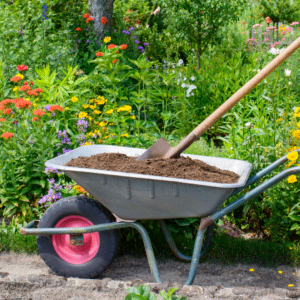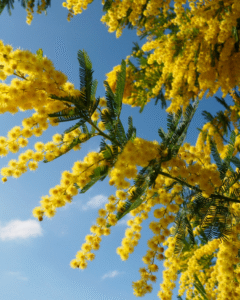
In an era where sustainability is gaining momentum, Australian homeowners are eagerly seeking ways to establish eco-friendly yards. By implementing sustainable principles and opting for environmentally-sound choices, individuals can fashion outdoor spaces that not only benefit the planet but also foster a healthy and thriving ecosystem. Here are some essential practices and products to consider when embarking on the journey to create an eco-friendly yard.
Water Conservation at the Core:
Water conservation lies at the heart of an eco-friendly yard, particularly in Australia where water scarcity is a significant concern. Installing a rainwater harvesting system allows you to collect and store rainwater for future use in irrigation, reducing reliance on municipal water sources and minimising water wastage. Additionally, selecting drought-tolerant native plants reduces the need for excessive watering and encourages water conservation in your yard.

Embracing Organic Gardening:
Embracing organic gardening practices is a fundamental aspect of an eco-friendly yard. By avoiding synthetic pesticides and fertilisers, you preserve soil health and prevent the leaching of harmful chemicals into water sources. Instead, opt for natural alternatives such as compost, mulch, and organic pest control methods. These practices foster a balanced ecosystem by attracting beneficial insects and pollinators while effectively managing pests.
Nurturing Native Plant Diversity:
Incorporating native plants into your yard not only adds aesthetic value but also supports local wildlife. Native plants have adapted to the Australian climate and require less water, fertilisers, and maintenance. They provide food and shelter for native birds, butterflies, and other beneficial insects. By creating a habitat that mimics the natural ecosystem, you contribute to biodiversity conservation and help restore ecological equilibrium.
| Plant Name | Toxicity Level |
| Grevillea | Non-toxic |
| Banksia | Non-toxic |
| Kangaroo Paw | Non-toxic |
| Bottlebrush | Non-toxic |
| Lilly Pilly | Non-toxic |
| Ferns (e.g., Bird’s Nest Fern, Staghorn Fern) | Non-toxic |
| Dianella (Flax Lily) | Non-toxic |
| Native Violet | Non-toxic |
| Wattles (Acacia species) | Non-toxic |
| Macadamia Nut | Non-toxic |
These plants are generally considered safe for gardens in Brisbane and pose no significant risk of toxicity to humans or pets. However, it’s important to note that individual sensitivities and allergies can vary, so it’s always a good idea to exercise caution and research specific plants before introducing them to your garden. If you have any concerns or questions, consulting with local garden centres or horticulturists can provide additional guidance.

Creating an eco-friendly yard is a rewarding endeavour that allows you to contribute to a healthier planet while enjoying the beauty of nature in your own backyard. By implementing water conservation practices, organic gardening techniques, native plantings, and selecting sustainable products, you can make a significant impact on the environment.
Remember, every small step towards sustainability counts, and collectively, these efforts can create a greener and more sustainable future for generations to come. So, start transforming your yard into an eco-friendly oasis today and be a part of the positive change our planet needs.
